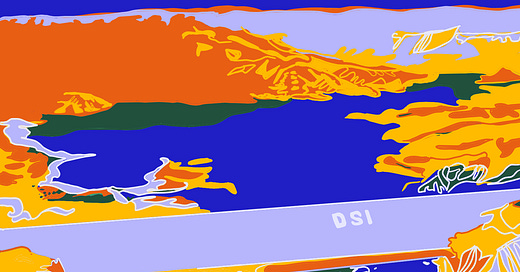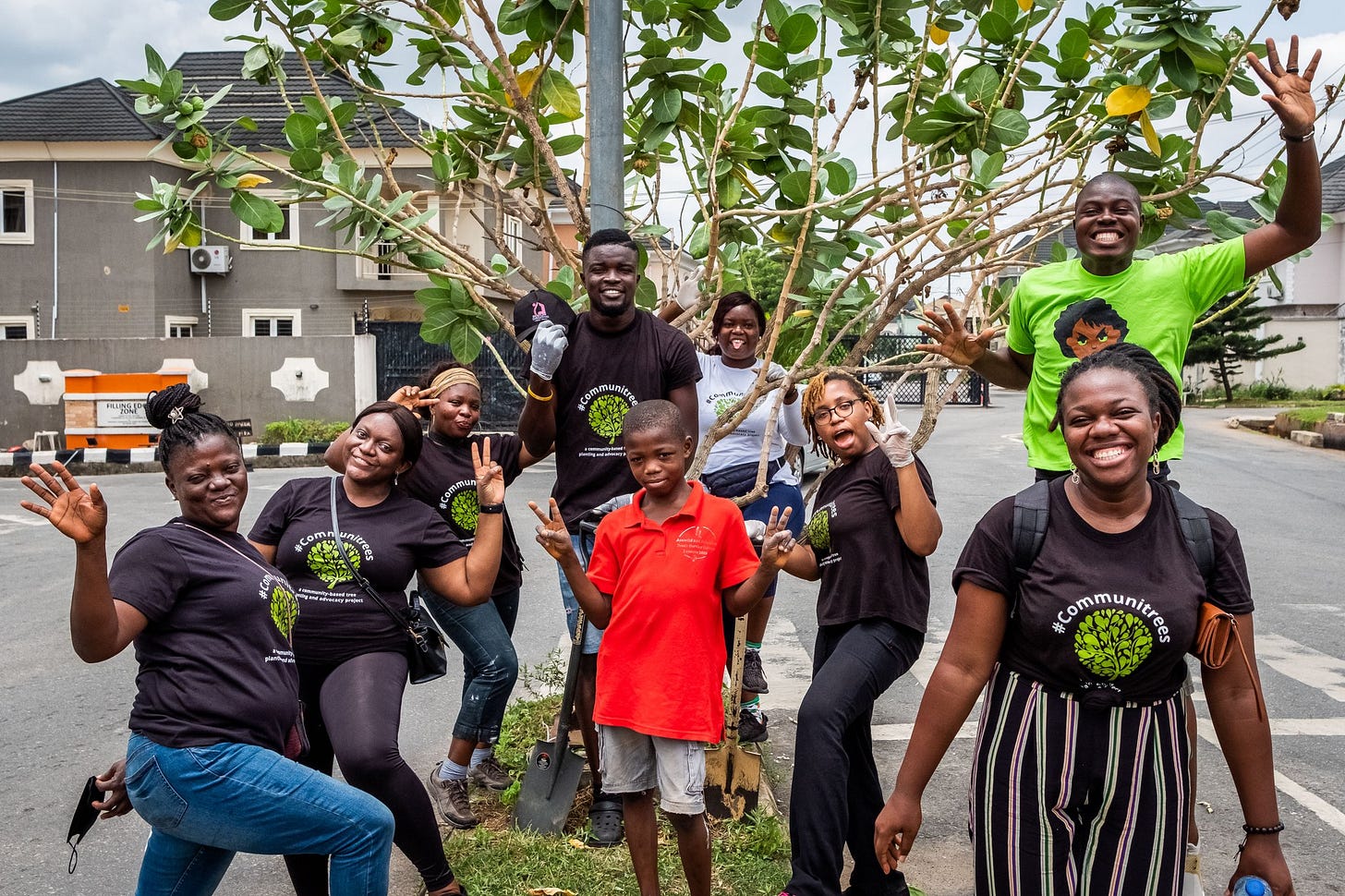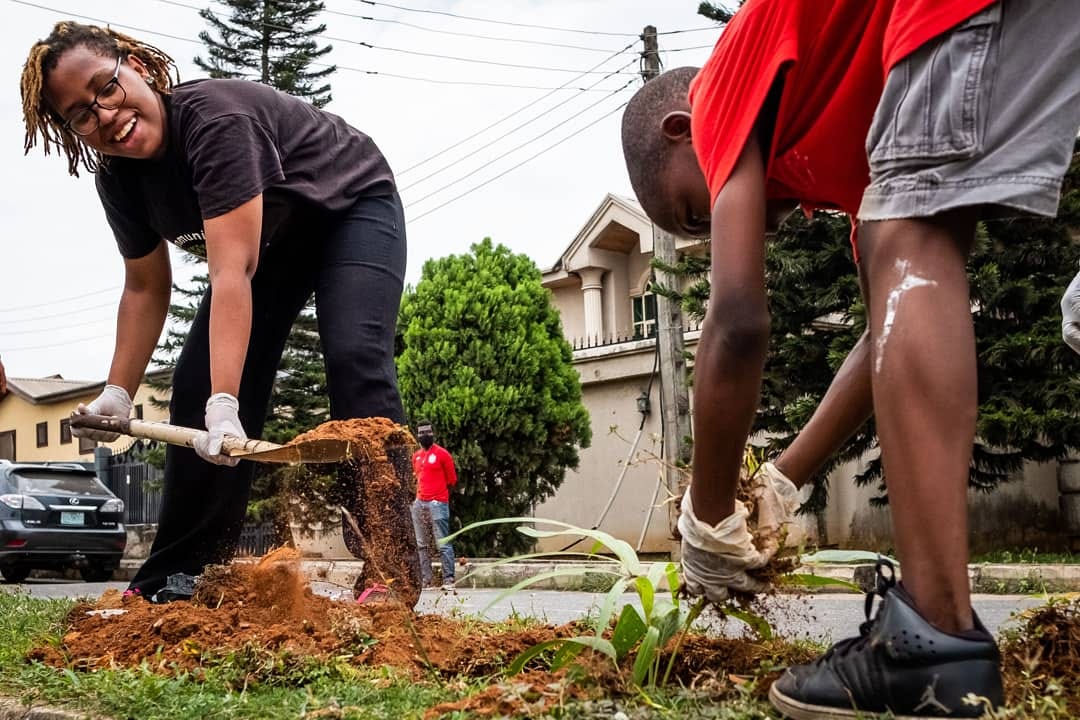Susty Vibes is inspiring climate action with pop culture
Meet the community teaching young Nigerians about their homeland's biodiversity – and why everyone should help to preserve it.
For the last five years, Susty Vibes has been using pop culture to encourage Nigeria’s young people to live sustainably and empower its women. It has held over 300 street clean-ups and 50+ sustainability events, and has collaborated with more than 300 private and public sector organisations.
Ours to Save spoke to the team about Nigeria’s ever-changing climate, how their projects are specifically designed to engage the youth population, and why government leaders in Africa need to prioritise sustainability.
What impact is climate change currently having in Nigeria?
Unlike other countries, Nigeria only has two climates: wet and dry. Due to climate change, we have been experiencing extremes of both seasons, so the wet seasons are becoming wetter and dry seasons are becoming hotter.
This is dangerous for our population as it disrupts farming, skewing planting and harvesting dates, and therefore causes food shortages across the country. Most of the population is already living with a scarcity of food, so this makes the situation even more difficult. It is a basic human right for everyone to have access to nutritional food and clean water, but unfortunately this is not the case in Nigeria.
The drying up of Lake Chad in the Northeast region is another large contributing factor to increasing levels of food insecurity. It is the fourth largest lake in Africa, with both decreased rainfall and human activity (such as overgrazing and unsustainable irrigation) contributing to its shrinking by nearly 90% since the 1960s.

On the other hand, coastal regions have experienced heavy flooding and cholera outbreaks. With rising sea levels and hotter temperatures, we are expected to see our population negatively affected in the future.
Your projects are designed to encourage young people to care for the environment. Which has been your most successful?
Our projects are focused on encouraging youth participation in connecting with the environment. These have been highly engaging and successful so far, as people share our vision of a world where doing the right thing for our planet is the norm.
Our latest project, Communitrees, was a tree planting exercise carried out in Lagos and Abuja. We planted over 5,000 trees in various schools and communities within the two states. This was also a sensitisation campaign to emphasise the benefit of planting trees in combating climate change, to both individuals and the environment.
We also encouraged community members and school students to adopt trees, hoping this will help to foster a personal connection between them and the Earth, showing we are all connected and should work together in harmony in order to achieve stability.
We organise events and projects dedicated to discussing how intentional living can become our collective norm. We also actively partner with private and public sector organisations/corporate to support sustainability.
What do you find most beautiful about nature and biodiversity in Nigeria?
What I find most interesting about Nigeria is all of its different ecological zones. It truly is a unique place on Earth in terms of biodiversity; there’s nowhere else like it! From the semi-deserts in the North, to the mangrove forests in the South; the mountains along the Eastern border, forests in the Southwest, and rich grasslands in the middle belt, we are truly blessed with nature.
Our aim is to make sustainability relatable, cool, actionable and fun for young Nigerians. By opening their eyes to the beauty of their homeland’s biodiversity, we aim to encourage more people to campaign for our causes.
What do you wish government leaders would know about encouraging sustainability in Africa?
First of all, I want them to acknowledge that climate change is real. This is a serious problem we are dealing with, and in order to move into progress through sustainable development we need to cross this hurdle.
The government needs to prioritise protecting environmental areas, as much as they do economic development. It should not be an either-or situation.
They must take responsibility for the damage that has led us to where we are now, and take urgent action towards fixing it.
Most importantly, governments should listen to young people, women and marginalised communities who are front-line victims of the climate crisis. This is how we can create inclusive climate action to ensure no one is left behind and empower young people with the knowledge and tools needed for eco-friendly living.
Follow Susty Vibes on Twitter.
Imaan Asim is a modern languages student at QMUL. You can read her work here.





